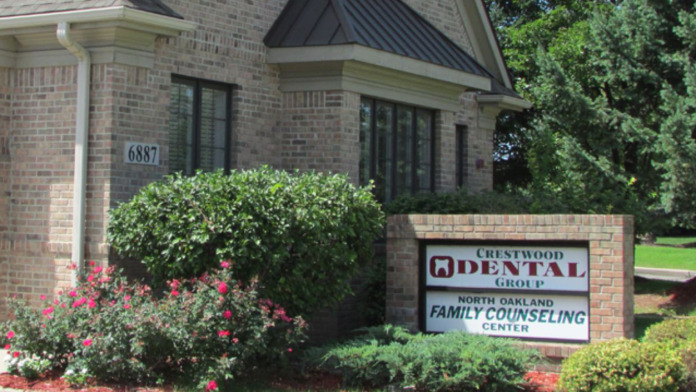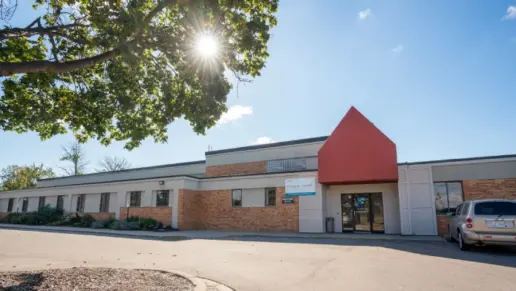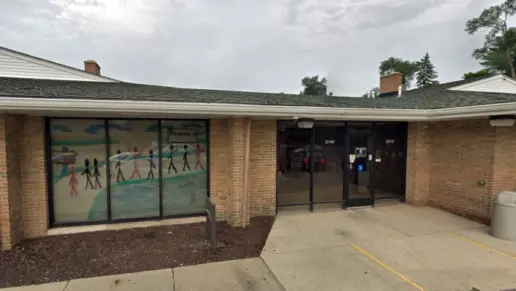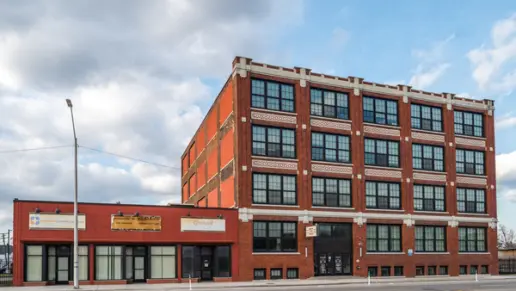About North Oakland Counseling
North Oakland Counseling is an outpatient mental health clinic that helps with substance use treatment. They provide top notch treatment and recovery services that facilitate sustained healing. They make the cost of therapy low and recovery accessible to a broader audience by accepting most insurance carriers. They even offer sliding fee scale options in most cases. North Oakland Counseling has centers across many locations in Michigan including this one in Clarkston.
This center is situated roughly two miles south of the picturesque Clarkston downtown area. It takes 15 to 20 minutes of driving to arrive here when coming from the nearby cities of Pontiac and Auburn Hills. Various public transportation options are available as well. This includes WOTA and FRT. Both offer low cost transport options for low income individuals in the community. You can contact these services directly to confirm eligibility and scheduling.
North Oakland Counseling is licensed by the state of Michigan to provide outpatient substance abuse and addiction recovery services. This encompasses substance use treatment, assessment and prevention programs. They offer Secretary of State evaluations for folks who have their driver’s licenses revoked or suspended due to DUI offenses. These evaluations assess your substance use history and risk of reoffending and suggest treatment or educational classes you might need to regain your driving privileges.
They can provide court ordered and employer mandated assessments as well as assessments for school or community program requirements. Assessment is also conducted to facilitate personalized treatment planning for people seeking substance use disorder treatment. They’ll offer referral to high intensity facilities within the community if your assessed need requires that level of care.
Their recovery approach mainly involves individual counseling aimed at addressing personal challenges, building coping skills and supporting lasting sobriety. They also offer family counseling to rebuild trust and improve communication. This creates a positive family dynamic and strengthens your support system. Common issues like anger management, depression and mood disorders which may trigger or co-occur with substance use are addressed in their broader behavioral health care.
The facility helps with gambling addiction as well. Substance use can be a way to cope with gambling losses. It can also excite you to gamble. Conversely, gambling can give you the thrill or distraction that complements substance use. Both addictions basically reinforce each other. This facility can provide counseling and treatment support to help you stop compulsive gambling behavior.
The facility also provides substance use prevention and safety programs. This may include educational workshops, community outreach and harm reduction programs.
Latest Reviews
Rehab Score
Gallery

Location
Accepted Insurance
Other Forms of Payment
Medicaid is a state based program that helps lower-income individuals and families pay for healthcare. Medicaid covers addiction treatment so those enrolled can use their coverage to pay for rehab. When a program accepts Medicaid the client often pays very little or nothing out of their own pocket.
Private insurance refers to any kind of healthcare coverage that isn't from the state or federal government. This includes individual and family plans offered by an employer or purchased from the Insurance Marketplace. Every plan will have different requirements and out of pocket costs so be sure to get the full details before you start treatment.
Self-pay involves paying for treatment out of your own pocket. You can use savings or credit, get a personal loan, or receive help from family and friends to fund your treatment. If you don't have insurance or your insurance plan doesn't cover a specific program, self-pay can help ensure you still get the care you need.
Sliding scale payments are based on a client's income and family size. The goal is to make treatment affordable to everyone. By taking these factors into account, addiction recovery care providers help ensure that your treatment does not become a financial burden to you or your family, eliminating one barrier to care.
Medicare is a federal program that provides health insurance for those 65 and older. It also serves people under 65 with chronic and disabling health challenges. To use Medicare for addiction treatment you need to find a program that accepts Medicare and is in network with your plan. Out of pocket costs and preauthorization requirements vary, so always check with your provider.
Military members, veterans, and eligible dependents have access to specific insurance programs that help them get the care they need. TRICARE and VA insurance can help you access low cost or no cost addiction and mental health treatment. Programs that accept military insurance often have targeted treatment focused on the unique challenges military members, veterans, and their families face.
Addiction Treatments
Levels of Care
Treatments
The goal of treatment for alcoholism is abstinence. Those with poor social support, poor motivation, or psychiatric disorders tend to relapse within a few years of treatment. For these people, success is measured by longer periods of abstinence, reduced use of alcohol, better health, and improved social functioning. Recovery and Maintenance are usually based on 12 step programs and AA meetings.
Drug rehab in Michigan provides personalized treatment to help individuals break this cycle and regain control of their lives. Treatment methods are used in various levels of care, including inpatient rehab, partial hospitalization programs, intensive outpatient programs, and standard outpatient treatment.
Many of those suffering from addiction also suffer from mental or emotional illnesses like schizophrenia, bipolar disorder, depression, or anxiety disorders. Rehab and other substance abuse facilities treating those with a dual diagnosis or co-occurring disorder administer psychiatric treatment to address the person's mental health issue in addition to drug and alcohol rehabilitation.
A combined mental health and substance abuse rehab has the staff and resources available to handle individuals with both mental health and substance abuse issues. It can be challenging to determine where a specific symptom stems from (a mental health issue or an issue related to substance abuse), so mental health and substance abuse professionals are helpful in detangling symptoms and keeping treatment on track.
Opioid rehabs specialize in supporting those recovering from opioid addiction. They treat those suffering from addiction to illegal opioids like heroin, as well as prescription drugs like oxycodone. These centers typically combine both physical as well as mental and emotional support to help stop addiction. Physical support often includes medical detox and subsequent medical support (including medication), and mental support includes in-depth therapy to address the underlying causes of addiction.
Programs



Clinical Services
Research clearly demonstrates that recovery is far more successful and sustainable when loved ones like family members participate in rehab and substance abuse treatment. Genetic factors may be at play when it comes to drug and alcohol addiction, as well as mental health issues. Family dynamics often play a critical role in addiction triggers, and if properly educated, family members can be a strong source of support when it comes to rehabilitation.
Group therapy is any therapeutic work that happens in a group (not one-on-one). There are a number of different group therapy modalities, including support groups, experiential therapy, psycho-education, and more. Group therapy involves treatment as well as processing interaction between group members.
Trauma therapy addresses traumatic incidents from a client's past that are likely affecting their present-day experience. Trauma is often one of the primary triggers and potential causes of addiction, and can stem from child sexual abuse, domestic violence, having a parent with a mental illness, losing one or both parents at a young age, teenage or adult sexual assault, or any number of other factors. The purpose of trauma therapy is to allow a patient to process trauma and move through and past it, with the help of trained and compassionate mental health professionals.
Contact Information
6887 Dixie Highway
Clarkston, MI 48346










